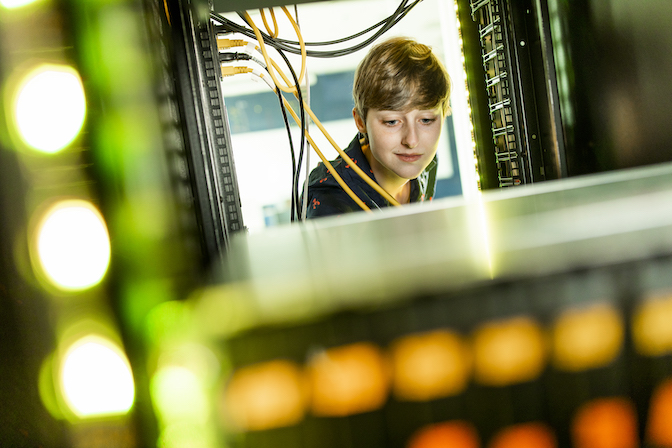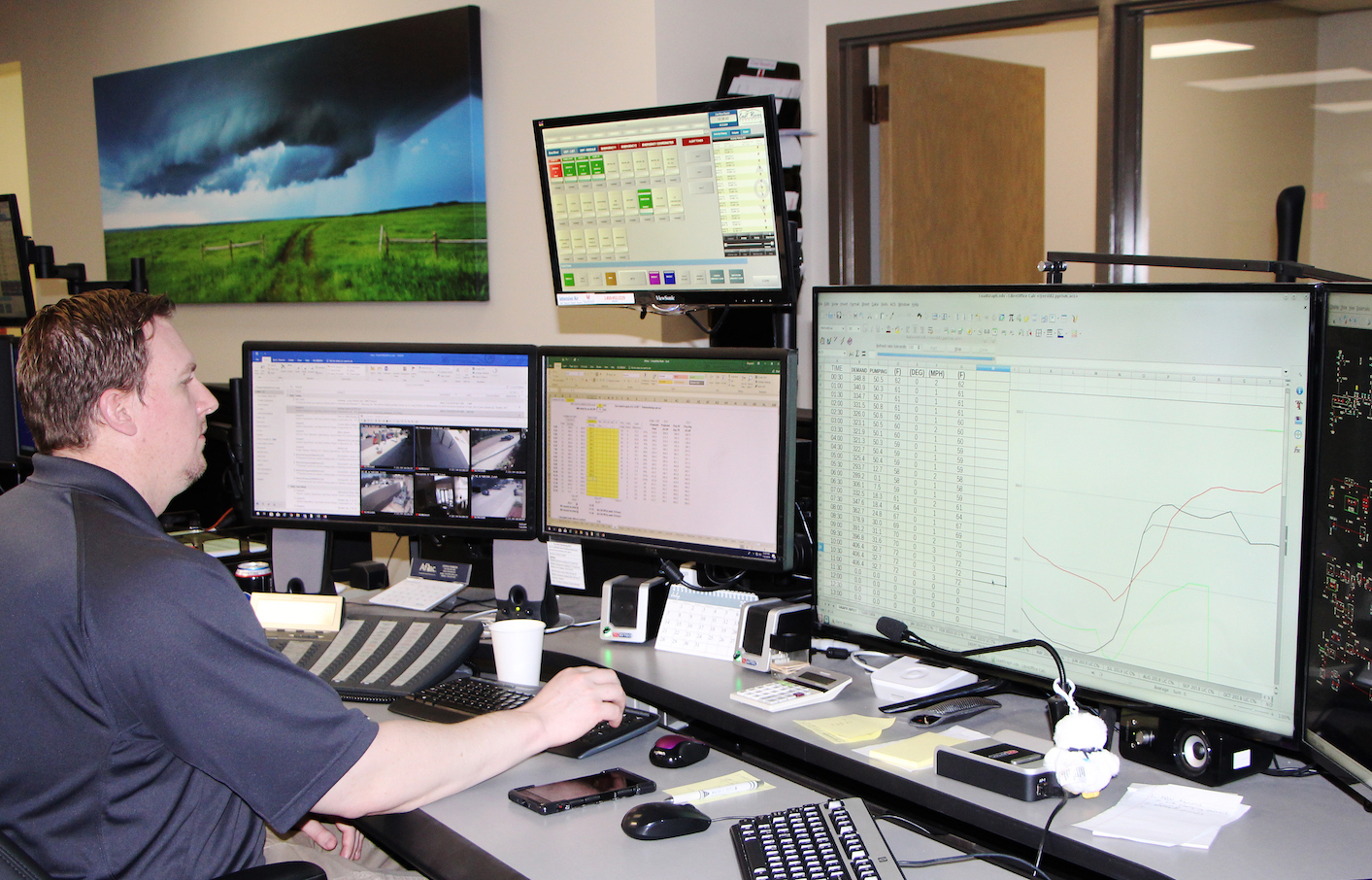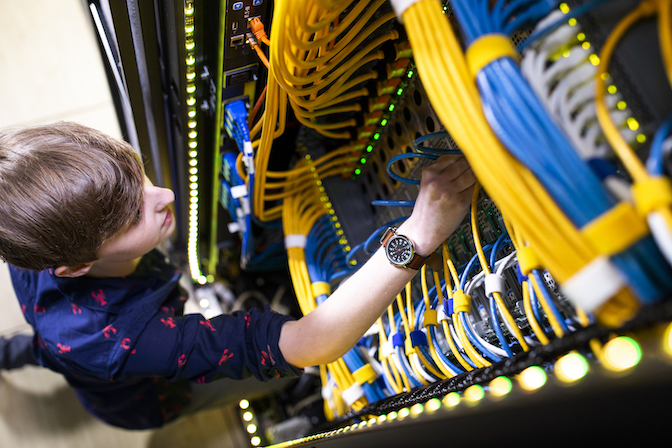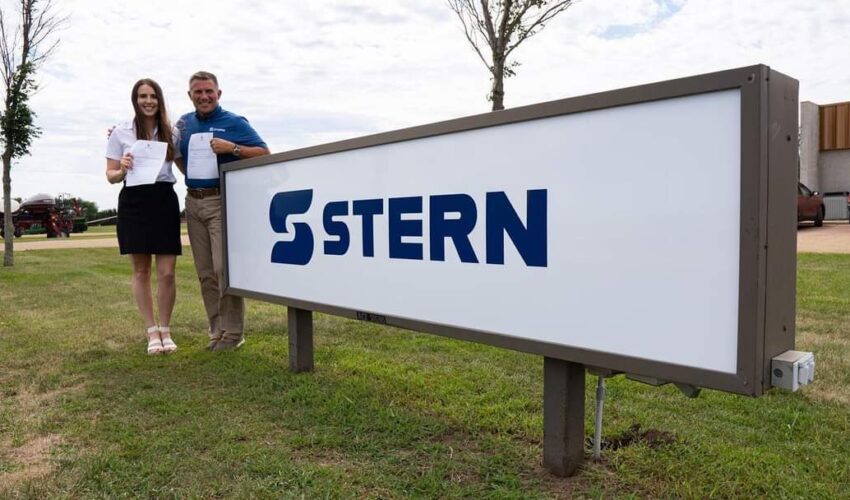Madison Cyber Labs at DSU launches research partnership around energy management
July 30, 2019
This paid piece is sponsored by Dakota State University
As you’re managing through a busy day, the last thing you want to do is check to see if your dishwasher is still running. Or if the shades are up or down. Or if the thermostat is set how you want. Or if you remembered to start the laundry.
These appliances use energy — and a lot of it. But what if you could control these things from one smart home hub or app while conserving energy at the same time?
Students and faculty at Dakota State University are in the beginning stages of searching for a solution to this issue.
As DSU prepares to open the Madison Cyber Labs, or MadLabs, this fall, the university continues to create more opportunities for students.
Through a newly announced partnership with East River Electric Power Cooperative and the National Rural Electric Cooperative Association, or NRECA, DSU students and faculty will conduct smart home and energy-management research within MadLabs.
East River Electric is a wholesale power supply cooperative headquartered in Madison that serves 24 distribution cooperatives and one municipal electric system across eastern South Dakota and western Minnesota. NRECA is a national association of more than 900 electric cooperatives and is headquartered in Washington, D.C.
“From Wi-Fi thermostats to smart appliances, our network of electric cooperatives is seeing increased adoption of smart home technologies among consumers,” said Shayla Ebsen, East River communications and marketing manager.
“While current technologies can help manage electricity usage and benefit consumers, we noticed a gap between the capabilities of those technologies and the needs of our utility network to connect to those technologies.”
In response to that gap, representatives from East River and NRECA are partnering with DSU on the smart home project. The research will investigate solutions that will allow utilities to help consumers optimize energy usage in the next generation of the rural home.
“The primary purpose is to evaluate existing consumer energy-management technologies and develop a prototype energy-management home hub that can interface with consumer high-energy-use devices,” said DSU program director David Link.
The research project will include three phases, with an initial exploratory phase that will investigate products on the market and determine how utilities could use existing technologies to control appliances and connected technologies within a home. The exploratory phase also will research the potential to build utility-specific technologies, both hardware and software, that could be used in homes to optimize energy usage and control power costs.
The second phase will include creating a utility-connected smart home laboratory space modeled after a real home. The third phase could include field testing of potential products in end-consumer homes to determine the viability of any hardware and software that is developed.
“As use of smart home technology continues to increase among consumers, we’re hoping to use this research project to identify technologies that will help us in our transition to a new energy-management future or to develop our own utility-specific technologies that can be replicated at cooperatives around the country to help consumers optimize energy usage and save them money,” said Chris Studer, East River chief member and public relations officer.
Smart home technology also might have an impact on grid security or home security, Link added.
“We will have a better understanding of consumer needs and demands for energy management and responses to these systems,” he said.
Though an official name has yet to be released, the East River MadLabs project space will resemble a home kitchen, with smart lighting, window shades, speakers, kitchen appliances and a Rheem® Marathon® water heater. With check-ins from East River, DSU students and faculty will conduct digital research simulations through computer and TV screens. The results will display on these screens and give viewers the feel of what a smart home could look like.
“Karl’s TV & Appliance of Madison is already on board. We are also reaching out to local businesses that make cabinets and countertops, as well as lighting fixtures, and are hoping to involve as many local businesses as possible. Ultimately, through the mock smart home, people will see where they can purchase these items, which will hopefully drive more customers to those partnering businesses,” said Erica Fitzhugh, East River marketing coordinator.
With an ambitious objective in mind, DSU students and faculty will have the chance to produce an energy-management system that doesn’t yet exist. This is the first of several cooperative partnerships that are in the development stages at Dakota State. Through Madison Cyber Labs research divisions, companies will engage in a variety of cybersecurity research initiatives with faculty and student researchers — projects that will benefit the researchers, the companies and ultimately the general public.
First-of-its-kind cyber research center demands unique approach to construction









